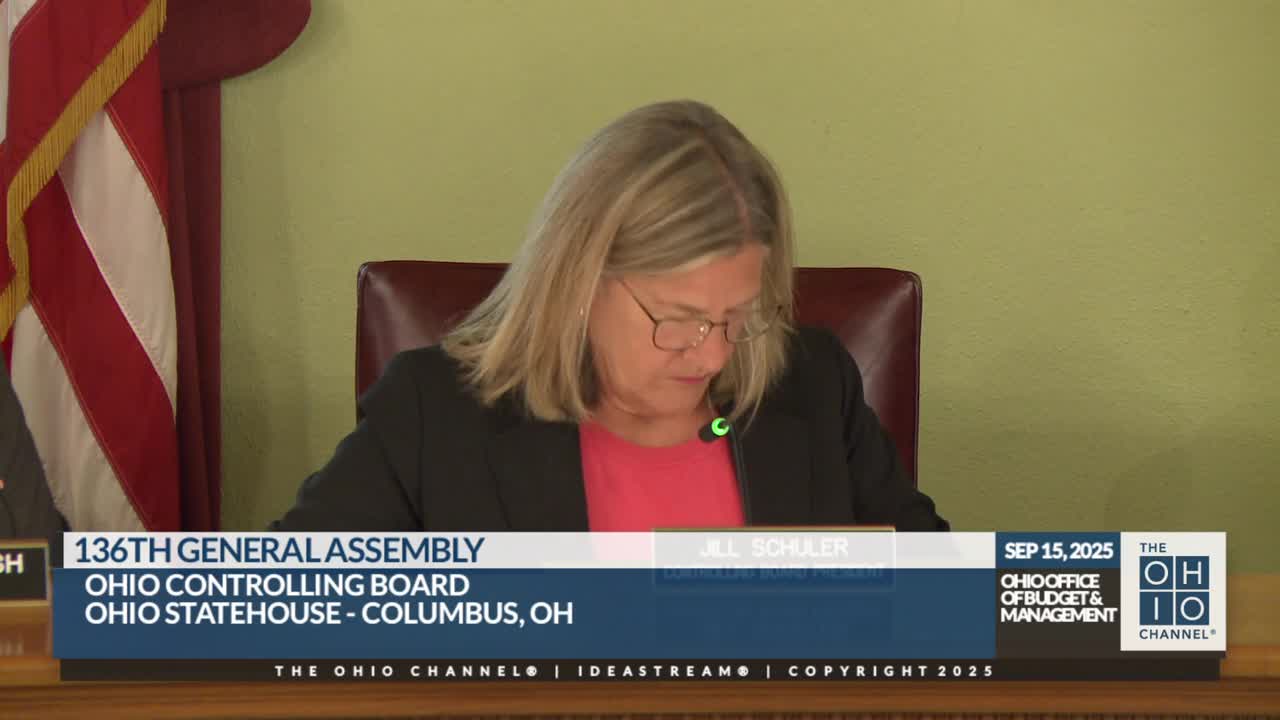Article not found
This article is no longer available. But don't worry—we've gathered other articles that discuss the same topic.
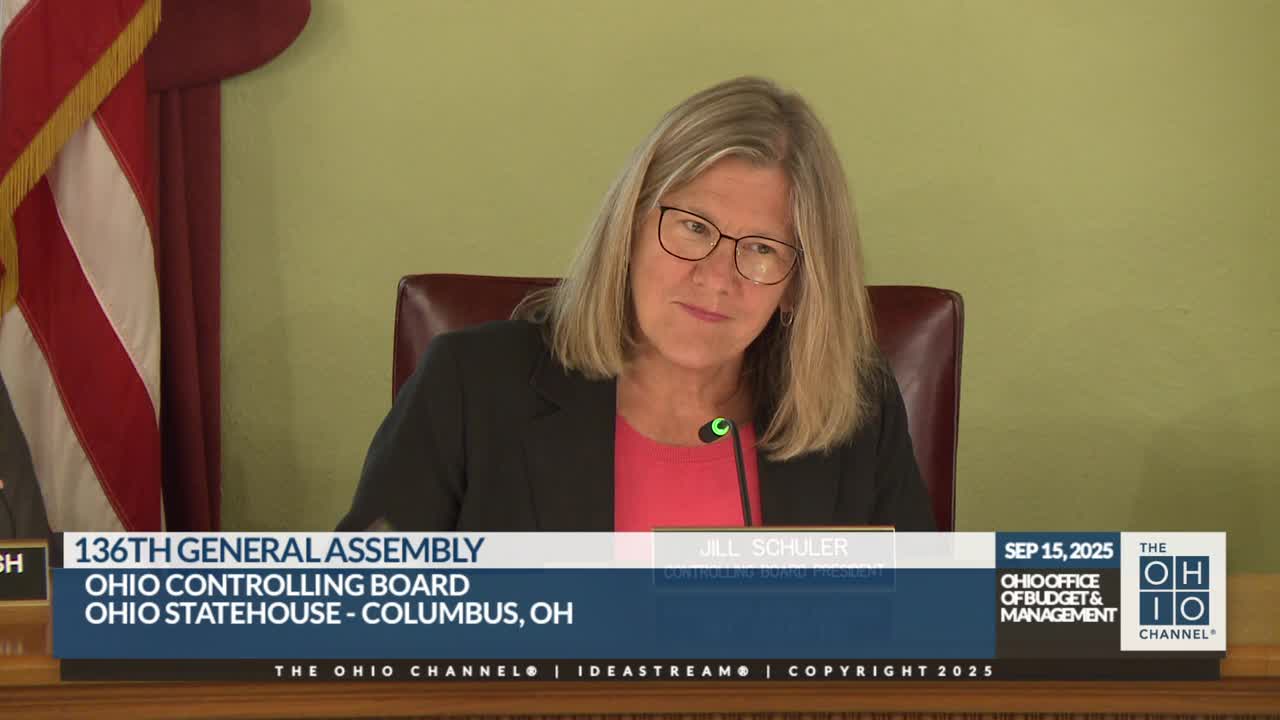
Board approves Facilities Construction Commission cloud migration and explains expedited local partnership credits for districts
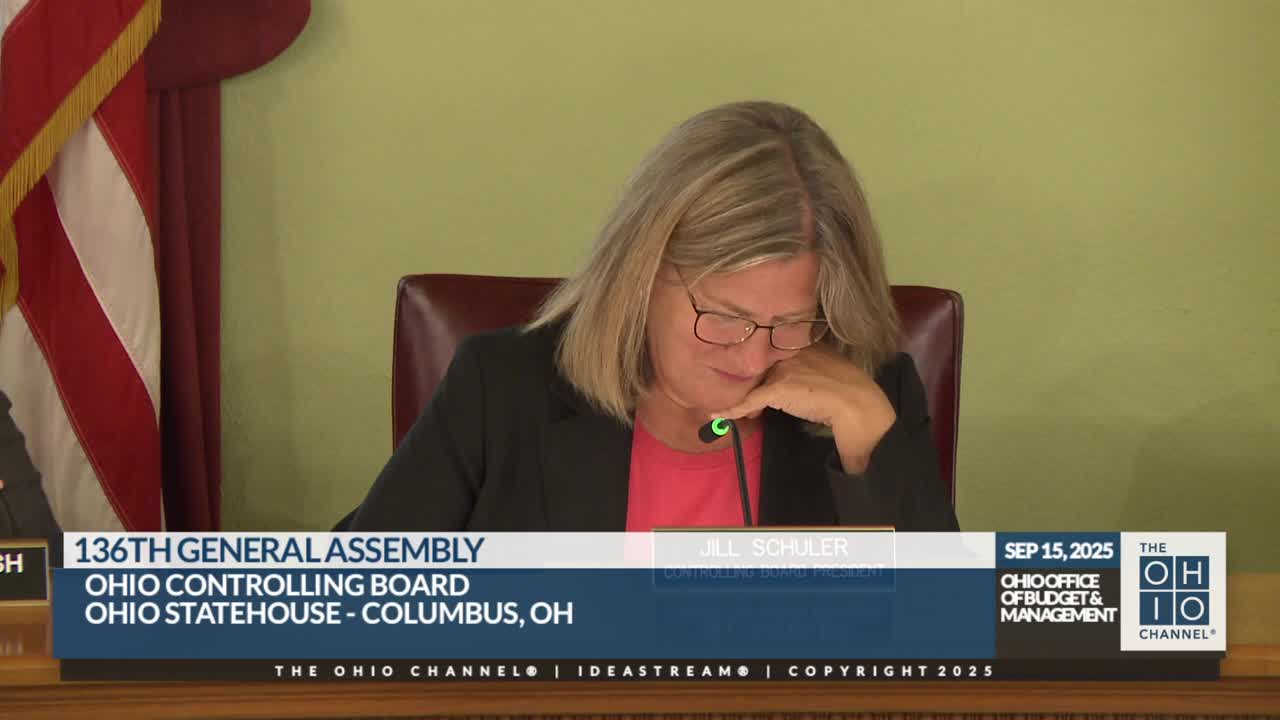
Public Defender office receives Controlling Board approval to address county-share shortfall in FY26
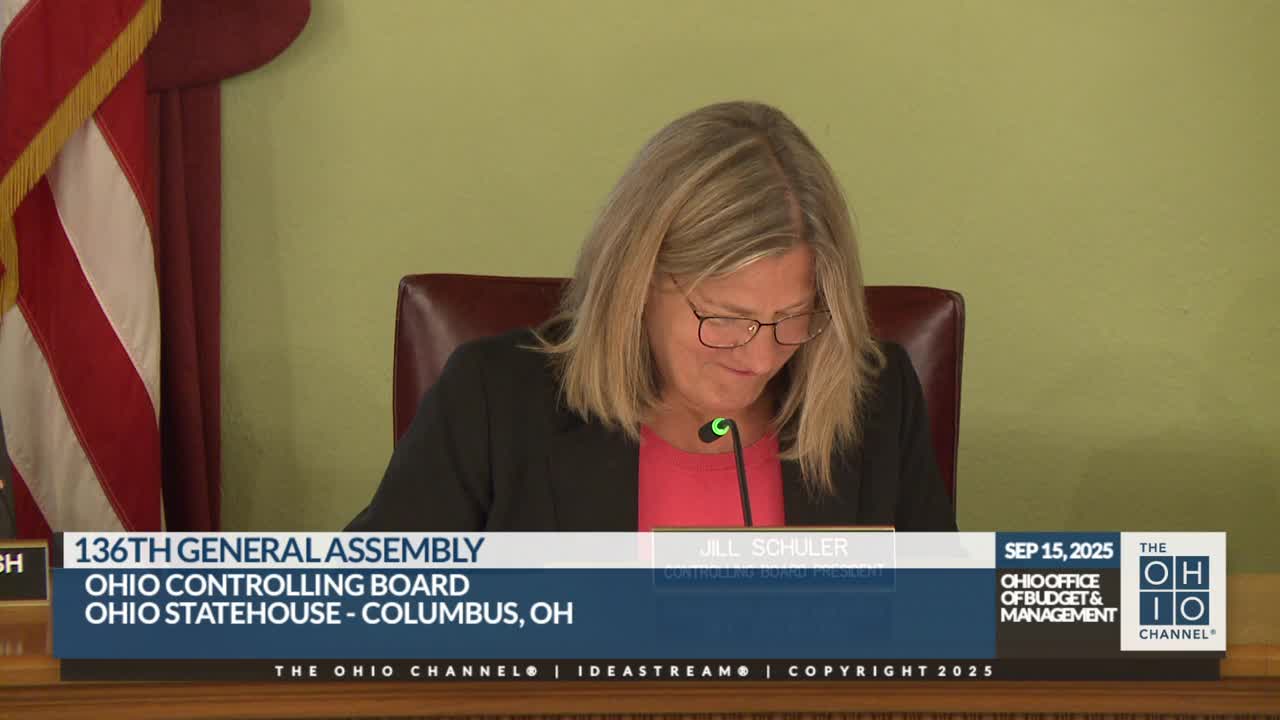
Controlling Board approves waiver to buy proprietary TBRI training; agency cites favorable study results
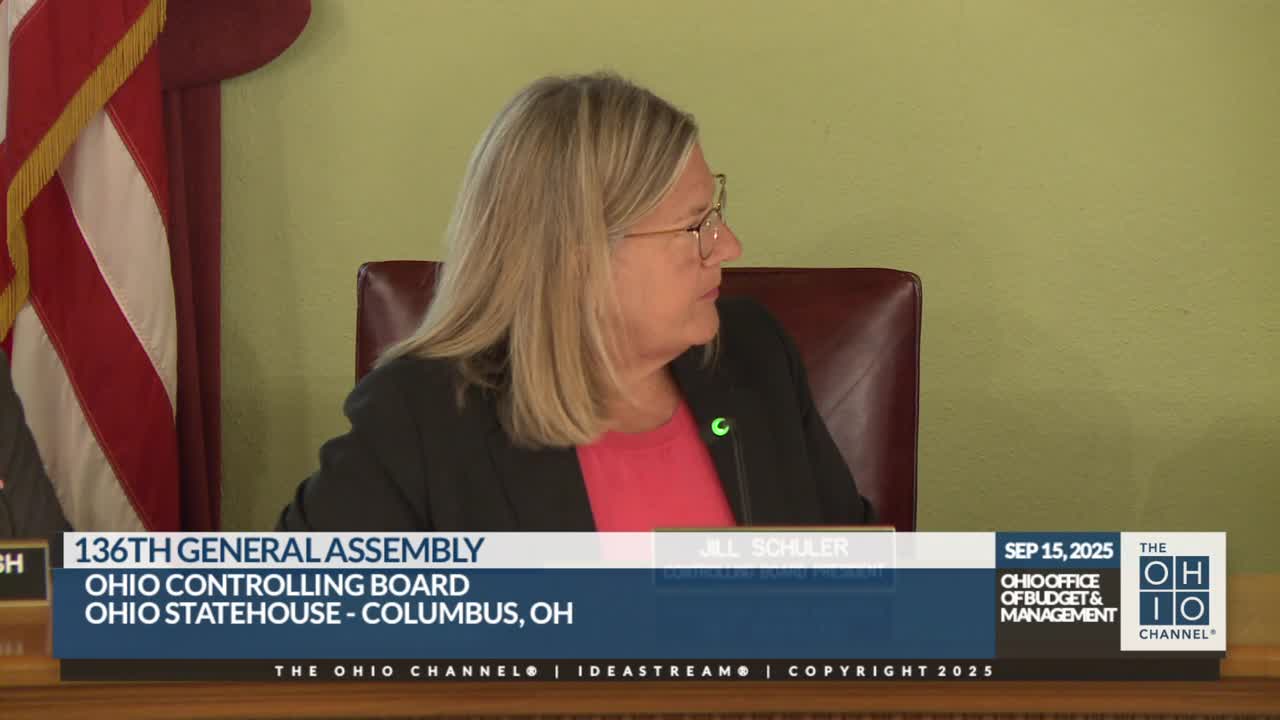
Controlling Board approves Ohio University amendment to Siegfried Hall project for GMP 4 and 5
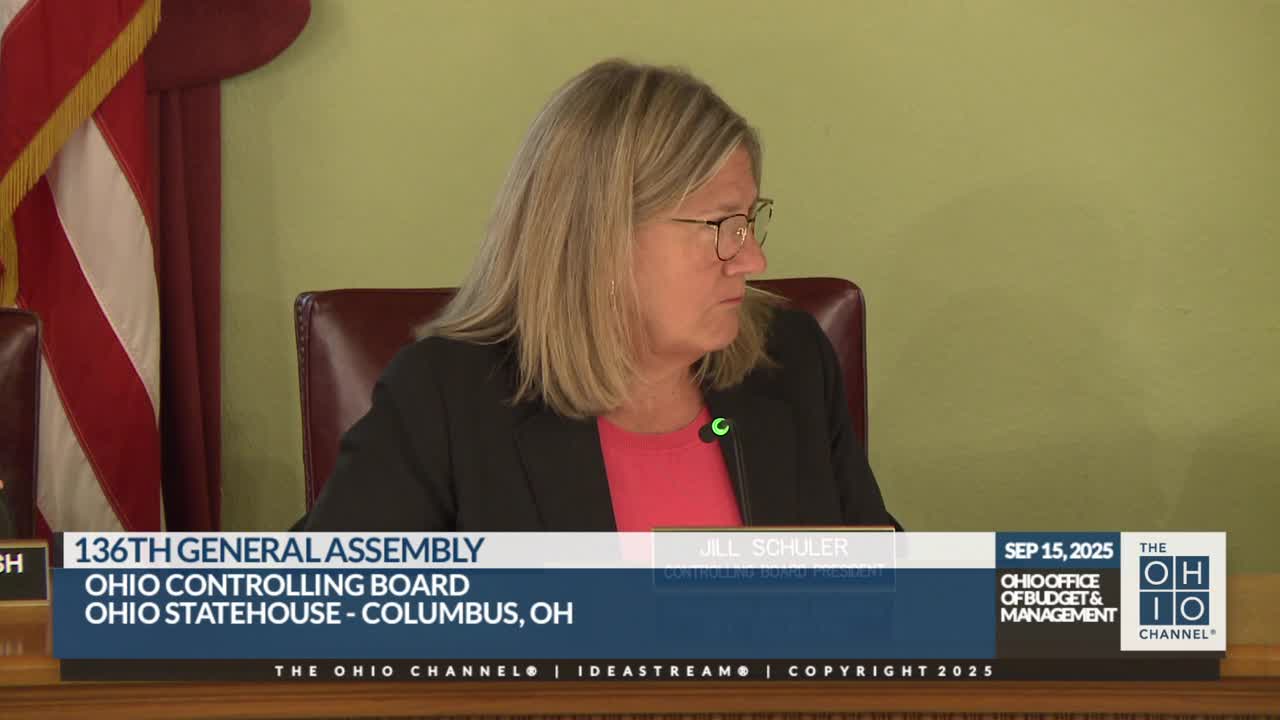
ODOT rest-area projects progressing; West Broad Complex is a $90M phased construction effort
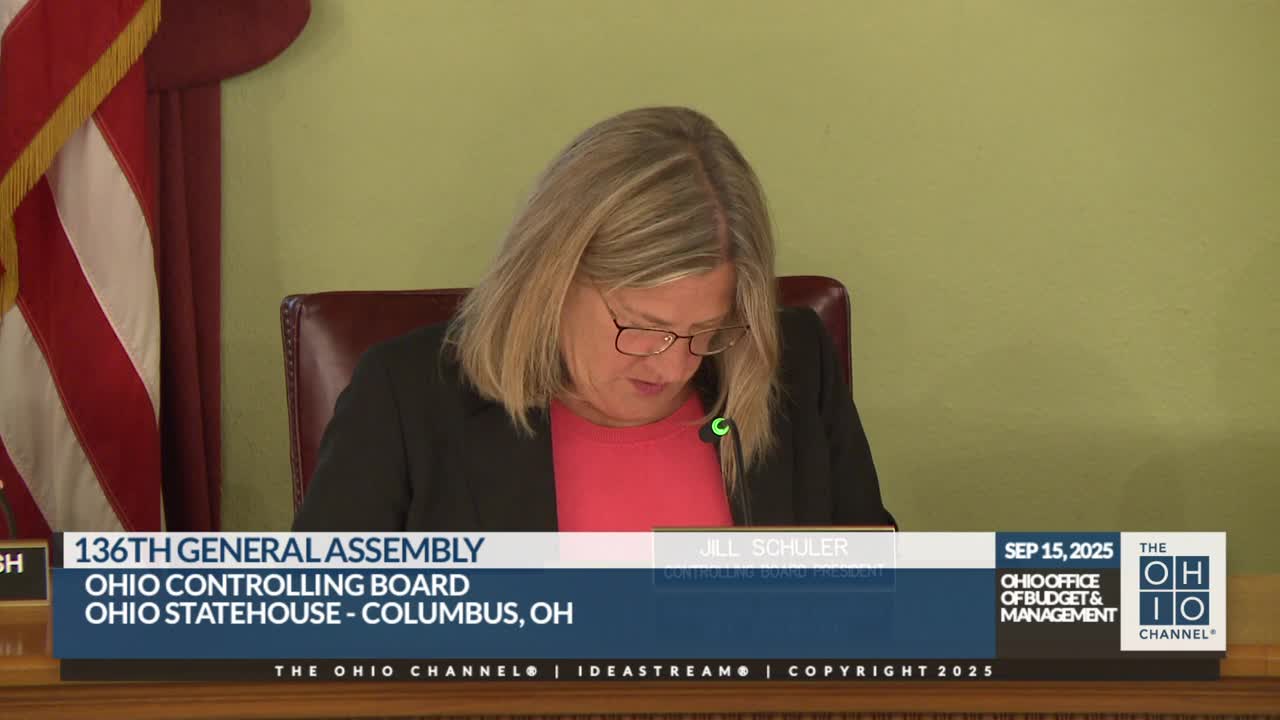
Controlling Board approves DPS liaison contract and disaster-relief transfers; board hears how disaster fund is tied to contingency account
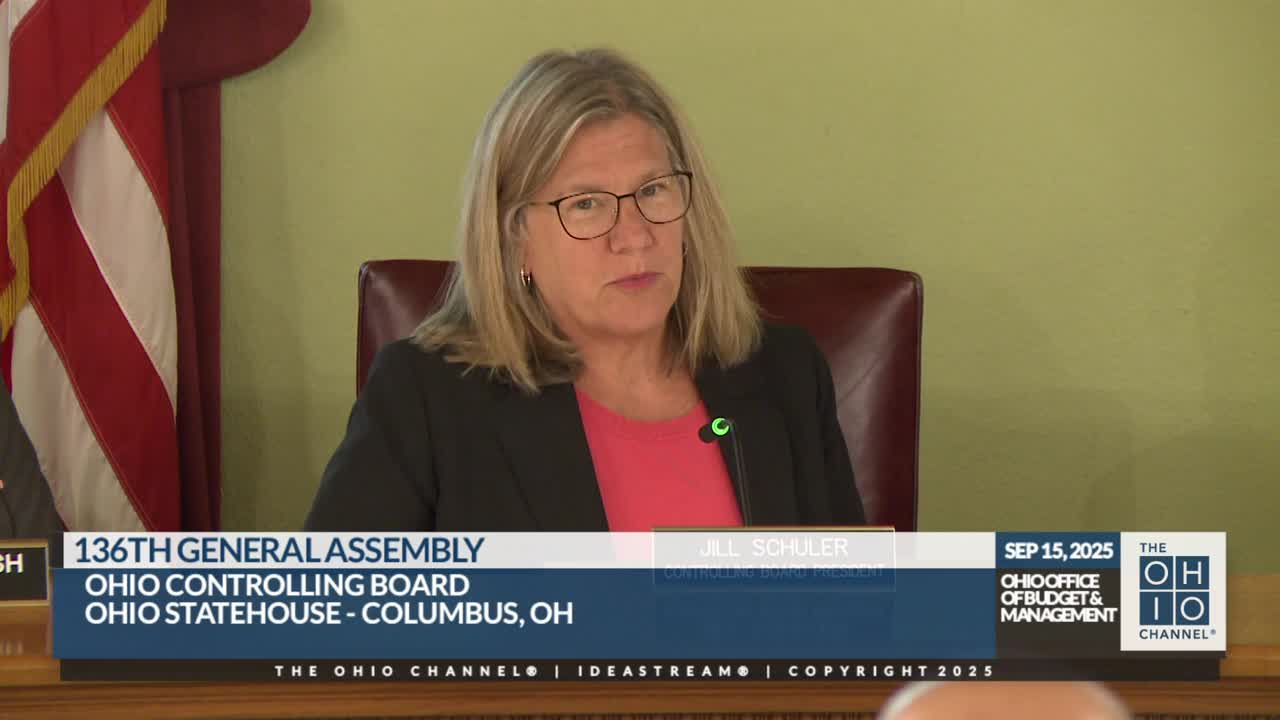
ODNR equipment and wetlands credits approved; agency says dozer is life-safety need, credits required by regulators
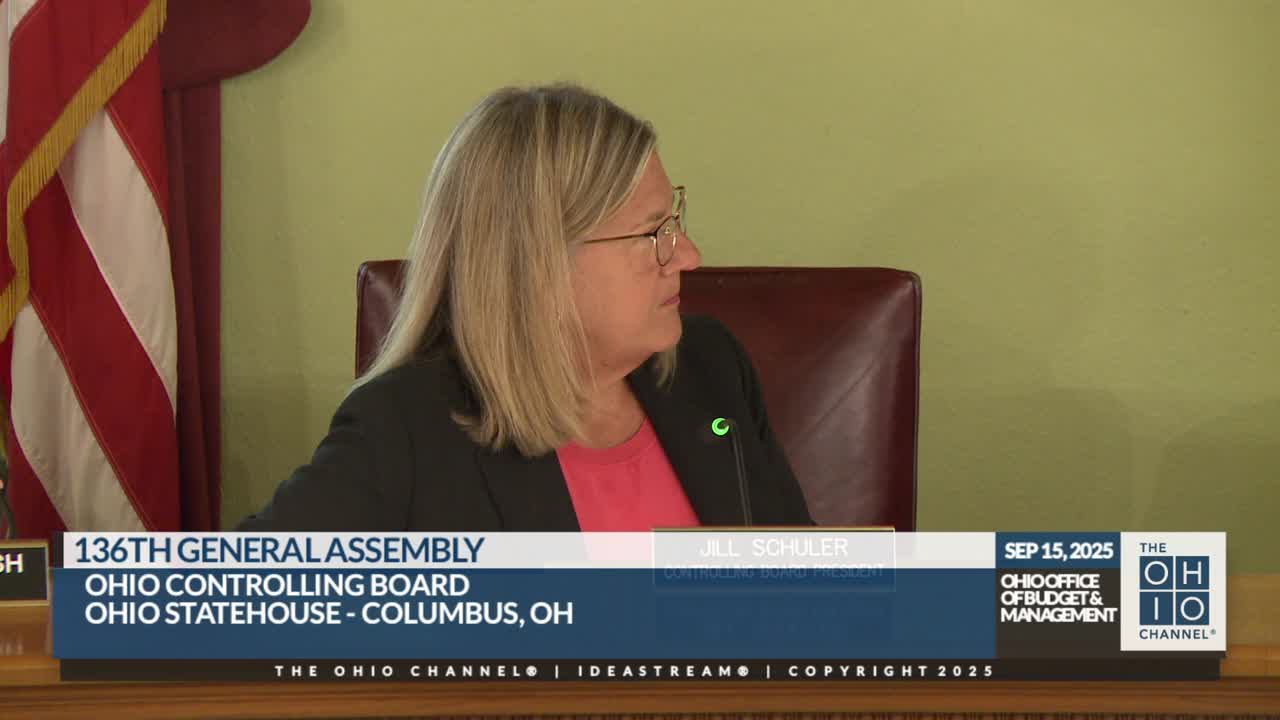
Third Frontier pilot funding approved; agency says pilots intended to prove concepts not guarantee ongoing funding
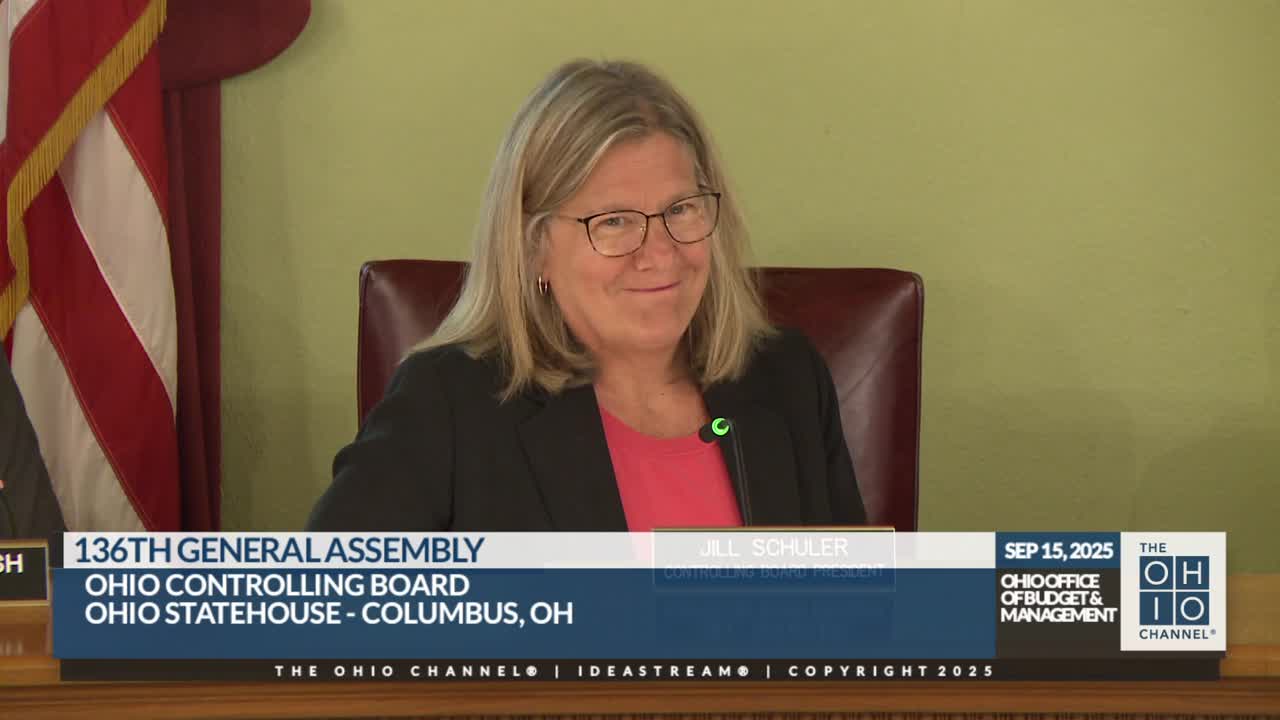
Controlling Board approves $15 million completion grant for Choose Ohio First FY21 cohort
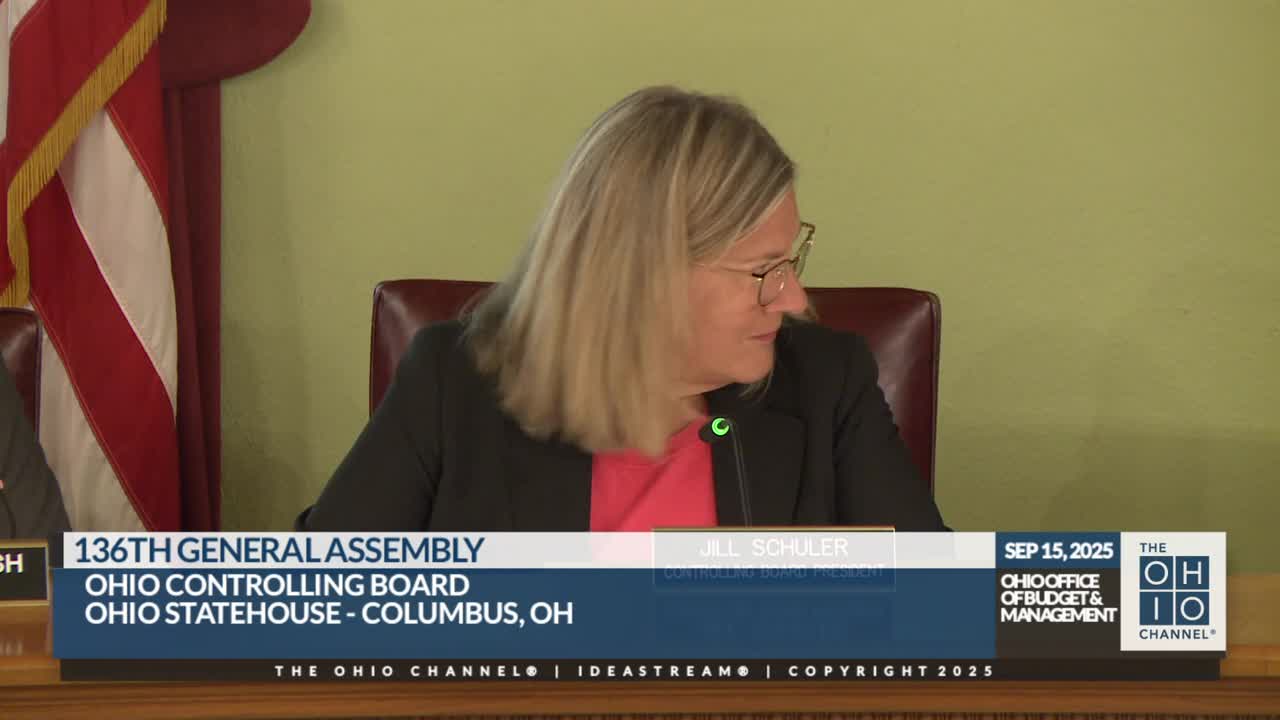
Controlling Board approves ODH transfer to state-managed immunization system; officials plan RFP in late 2026
